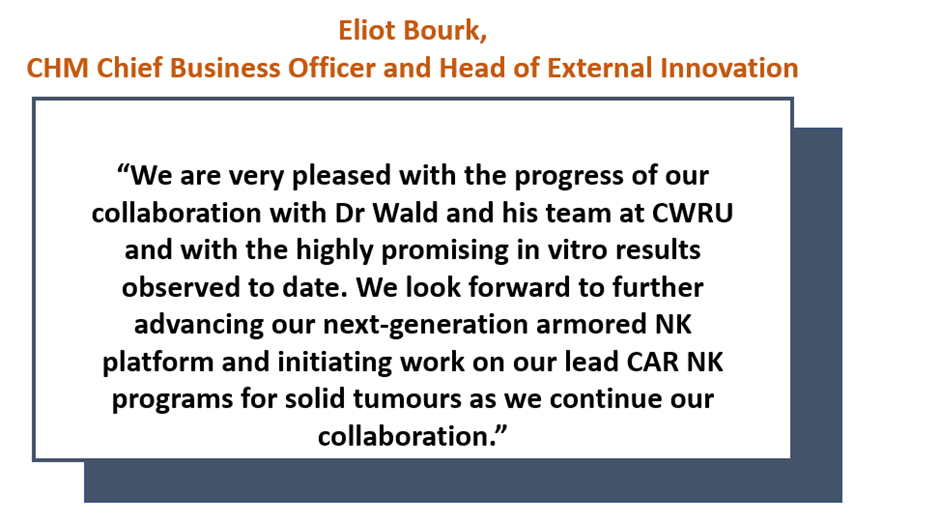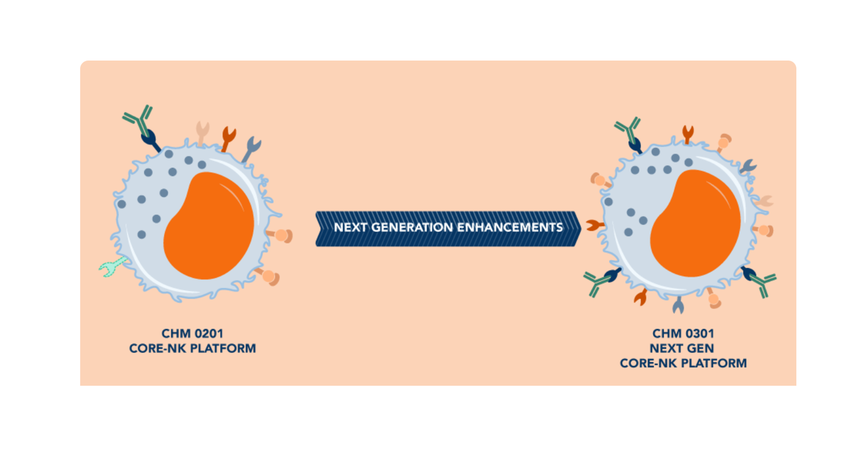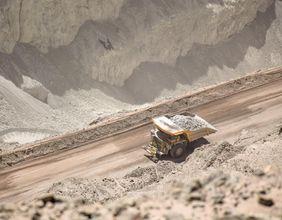Highlights
- Chimeric has reported positive in vitro data for its next generation armored natural killer (NK) cell platform, CHM 0301.
- CHM 0301 has presented significant enhancement of TGFβ resistance and potency.
- Chimeric is focused on further advancing its CHM 1301 platform and initiating work on its lead CAR NK programs for solid tumours.
Chimeric Therapeutics Limited (ASX: CHM) has shared encouraging in vitro data for CHM 0301, the company’s next generation armored natural killer (NK) cell platform.
The ASX-listed cell therapy-focused company collaborated with the laboratory of Dr Wald under a sponsored research program in November 2022. Under the collaboration, Chimeric and Dr Wald’s team designed, produced, and characterised CHM 0301 to maximise potency and increase the resistance of CHM 0201 NK cells to TGFβ.

The CHM 0301 platform has been developed on the base of CHM 0201, which has earlier shown safety and early signs of clinical activity in patients with acute myeloid leukemia (AML) and colorectal cancer (CRC). Currently, it is being assessed in the first clinical trial to integrate NK cells with Vactosertib, an oral TGFβ receptor inhibitor.
Details of positive in vitro data
The platform was assessed in in vitro models of CRC and AML. The platform presented substantial improvement in TGFβ resistance and potency in comparison to CHM 0201 cells, suggests the company update. 
Data Source: Company update
The company highlighted that more experiments are being conducted to characterise the activity and behaviour of the cell platform. As a part of the CHM 1301 and CHM 2301 CAR NK programs, the company intends to introduce CLTX and CDH17 CARs into its NK cell platform.
CHM 0301 engineers CHM 0201 cells with two “armoring” enhancements, created with the aim to increase potency and control immune-suppressive tumour microenvironments.
The CHM 0301 cells secrete the immunostimulatory cytokine interleukin 15 and demonstrate a dominant-negative TGFβ receptor molecule on the surface.
TGFβ is a key immune-suppressive factor that is expressed in the tumour microenvironment and known to inhibit the anti-tumour activity of NK cells and T cells.






